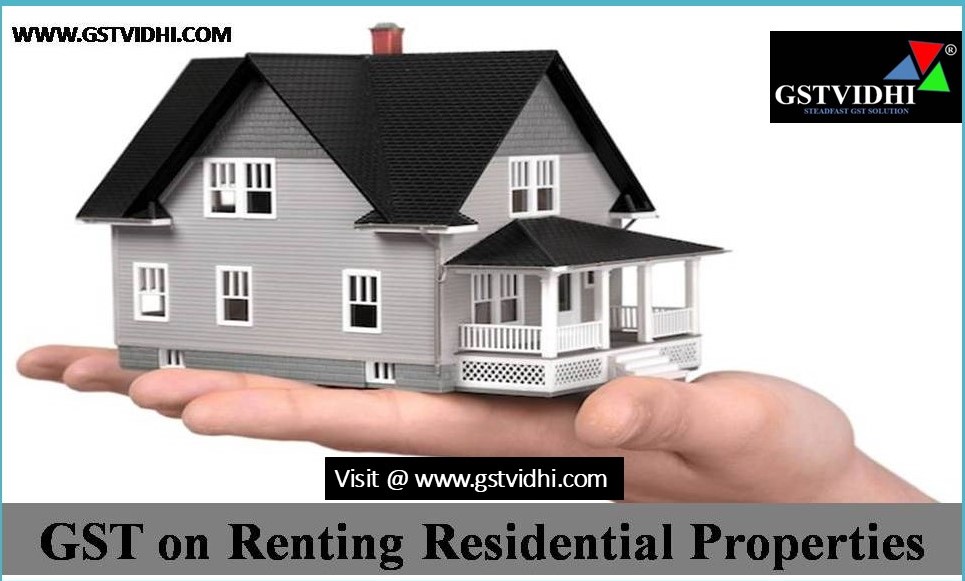
RCM on Renting of Residential Property / GST on Renting Residential
Properties: A Simplified Overview
Article
By: Yogesh Verma (LLB/CS/M.Com)
Introduction: In
GST law, the term ‘renting’ isn't specifically defined. However, Notification
No. 12/2017-Central Tax (Rate) gives a clear idea. It defines renting of
immovable property as letting someone use, enter, or occupy a property, either
fully or partially, with or without transferring possession or control. This
includes various forms like leasing and licensing.
GST is charged on goods
and services provided for business purposes. This includes renting. According
to Paragraph 2(a) of Schedule II, any lease or letting out of buildings—whether
for commercial, industrial, or residential purposes—is considered a supply of
services.
So, whether a landlord
rents out one flat or twenty, it counts as engaging in business under GST.
However, GST registration is required only if the rental income exceeds a
certain threshold.
Renting of Residential
Properties Before July 18, 2022
Before July 18, 2022,
renting residential properties for living purposes was exempt from GST. This
exemption applied to all tenants, whether they were registered or not. The
focus was on the use of the property for residence.
However, the 47th GST
Council Meeting on June 28-29, 2022, suggested changes. It proposed that
renting residential properties to business entities should be taxed. This was
because many companies rent homes for their employees, and this was previously
exempt.
Renting of Residential
Properties from July 18, 2022
Following these
recommendations, the CBIC issued Notification No. 04/2022-Central Tax (Rate) on
July 13, 2022, changing the rules. From July 18, 2022, renting a residential
property remains exempt from GST if it’s used as a residence, except when the
tenant is a registered person. Notification No. 05/2022-Central Tax (Rate)
introduced a reverse charge mechanism. This means that GST for renting to a
registered person must be paid by the recipient under reverse charge.
Clarification for
Proprietors
There was some confusion
about whether a registered proprietor renting a residential property for
personal use would be taxed. This was clarified in the 48th GST Council
Meeting. On December 30, 2022, Notification No. 15/2022-Central Tax (Rate) was
issued, adding an explanation to the exemption rules:
Explanation: The
exemption applies to renting a residential property to a registered person if:
1. The
person is a proprietor and rents the property for their personal use, and
2. The
renting is done for their personal needs, not for their business.
In simple terms, if a
registered proprietor rents a home for personal use, it’s exempt from GST. But
if the property is used for business purposes, GST will apply.
Summary:
- Residential Property for Business: Taxable
under GST if rented for business purposes. Reverse charge applies if the
tenant is a registered person.
- Residential Property for Personal
Use:
- If Tenant is Registered: Taxable
under GST (reverse charge).
- If Tenant is a Proprietor Renting
Personally: Exempt from GST.
- If Tenant is Unregistered: Exempt
from GST.
Disclaimer: All
the Information is based on the notification, circular and order issued by the
Govt. authority and judgement delivered by the court or the authority
information is strictly for educational purposes and on the basis of our
best understanding of laws & not binding on anyone.
Click here